练习内容
热身 Warm – up
1 给下面的词语选择对应的图片
Match the pictures with the words/phrases.
shàng bān ①上班 _
chàng gē ②唱歌 _
duì cuò ③对错 _
wèn tí ④问题 _
dì yī ⑤第一 _
tiào wǔ ⑥跳舞 _
2 给下面的动词加上合适的宾语
Add an appropriate object after each of the following verbs.
例如:xué Hànyǔ 学 汉语
kàn 看 _
xiě 写 _
chī 吃 _
hē 喝 _
dǎ 打 _
zuò 做 _
课文内容

课文 Text
Nǐ hǎo! Qǐngwèn Zhāng Huān zài ma?
A: 你好! 请问 张 欢 在吗?
Nǐ dǎcuò le, wǒmen zhèr méiyǒu
B: 你打错了,我们这儿没有
jiào Zhāng Huān de.
叫 张 欢 的。
Duìbuqǐ.
A: 对不起。
English Version
A: Hello! May I speak to Zhang Huan?
B: You’ve got the wrong number. There isn’t a person called Zhang Huan here.
A: I’m sorry.
New Word
- 1. 错 cuò adj. wrong, incorrect
2 在学校 In the school
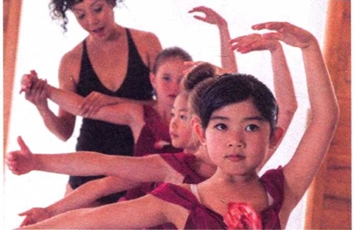
Nín cóng jǐ suì kāishǐ xuéxí tiào wǔ?
A: 您-从 几岁 开始学习 跳舞?
Wǒ dì yī cì tiào wǔ shì zài qī suì de shíhou.
B: 我第一次跳舞是在七岁的 时候。
Wǒ nǚ’ér jīnnián yě qī suì le. Wǒ xīwàng tā
A: 我女儿今年 也七岁了。我 希望她
néng gēn nín xué tiào wǔ, kěyǐ ma?
能 跟您学跳舞,可以吗?
Méi wèntí, fēicháng huānyíng.
B: 没问题,非常 欢迎。
English Version
A: At what age did you start to learn dancing?
B: I was seven when I danced for the first time.
A: My daughter is seven now. I hope she can learn to dance from you, can she?
B: Sure. It’s my pleasure.
New Words
- 2. 从 cóng prep. from
- 3. 跳舞 tiào wǔ v. to dance
- 4. 第一 dì yī num. first
- 5. 希望 xīwàng v. to hope, to wish
- 6. 问题 wèntí n. question, problem
- *7. 欢迎 huānyíng v. to welcome
Chinese Learning Content
3 在家里 At home 09-3
Ni zhīdào ma? Dàwèi zhǎodào gōngzuò le.
A: 你知道吗?大卫 找到 工作了。
Tài hǎo le! Tā cóng shénme shíhou kāishǐ shàng bān?
B: 太好了!他从 什么 时候开始 上 班?
Cóng xià ge xīngqī yī kāishǐ.
A: 从 下个星期一开始。
Zhè shì tā de dì yī ge gōngzuò, xīwàng tā néng xǐhuan.
B: 这 是他的第一个 工作,希望 他 能 喜欢。

A: You know what? David has got a job.
B: That’s great! When will he start to work?
A: Next Monday.
B: This is his first job. I hope he will like it.
New Word
8. 上班 shàng bān v. to work, to do a job
4 在教室 In the classroom 09-4

Zuótiān de kǎoshì zěnmeyàng?
A: 昨天 的考试 怎么样?
Nǐ dōu tīngdǒng le ma?
A: 你都 听懂 了吗?
Tīngdǒng le.
B: 听懂 了。
Nǐ dōu zuòwán le méiyou?
A: 你都 做完了 没有?
Tí tài duō, wǒ méi zuòwán.
B: 题太多,我 没 做完。
A: How was the test yesterday? Did you understand everything you heard?
B: Yes, I did.
A: Did you finish the test paper?
B: There were too many questions, I didn’t finish all of them.
New Words
9. 懂 dǒng v. to understand, to know
10. 完 wán v. to finish, to end
11. 题 tí n. question, problem
结果补语语法讲解
注释 Notes
1 结果补语 Complements of Result
一些动词或形容词可以放在动词后边,补充、说明动作的结果,它们叫作结果补语。例如:
Some verbs or adjectives can be used after a verb to add remarks about the result of an action. They are called
complements of result. For example:
| Subject |
Predicate
V + Complement of result |
Object |
| 我 |
看 见 |
你的女朋友了。 |
| 我 |
听 懂 |
今天的汉语课了。 |
| 我 |
做 好 |
饭了。 |
| 大卫 |
找 到 |
工作了。 |
在结果补语前加“没(有)”表示否定,句尾不能用“了”。例如:
“没(有)”is added before the verb to form the negative form of a complement of result, in which case “了”cannot
appear at the end of the sentence. For example:
| Subject |
Predicate
没(有) + V + Complement of result |
Object |
| 我 |
没有 看 见 |
你的女朋友。 |
| 我 |
没 听 懂 |
他说的话。 |
| 我 |
没 做 完 |
(考试题)。 |
表示疑问时,常在句尾加上“(了)没有”。例如:
To form a question, “(了)没有”is often added at the end of the sentence. For example:
| Subject |
Predicate
V + Complement of result |
Object +(了)没有? |
| 你 |
看 见 |
我的女朋友了没有? |
| 你 |
听 懂 |
他说的话没有? |
| 你 |
(都)做 完 |
(考试题)了没有? |
Grammar Explanation
2 介词 “从” The Preposition “从”
介词 “从” 引出一段时间、一段路程、一件事情的经过或者一个序列的起点,后面常跟 “到” 一起搭配使用。例如:
The preposition “从” introduces the starting point of a period of time, a distance, a process or a sequence, often used together with “到”. For example:
| 从 |
A |
到 |
B |
…… |
| 从 |
北京 |
到 |
上海 |
要坐几个小时的飞机? |
| 从 |
老人 |
到 |
孩子 |
都喜欢吃苹果。 |
| 从 |
下个星期一 |
|
|
开始(上班)。 |
3 “第~” 表示顺序 “第~” Indicating Order
“第” 常被放在数量短语前边,表示顺序。例如:
“第” is often used before a numeral – measure – word phrase to indicate order. For example:
| 第 |
数词(Num) |
量词(M) |
名词(N) |
| 第 |
一 |
本 |
书 |
| 第 |
二 |
个 |
工作 |
| 第 |
一 |
次 |
跳舞 |





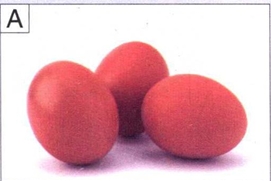
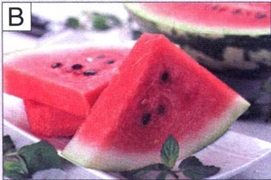



























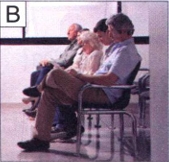


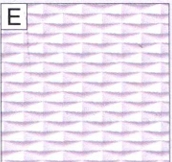









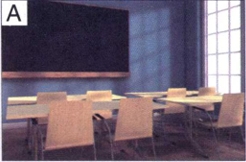





 ①______
①______
 ②______
②______
 ③______
③______
 ④______
④______









